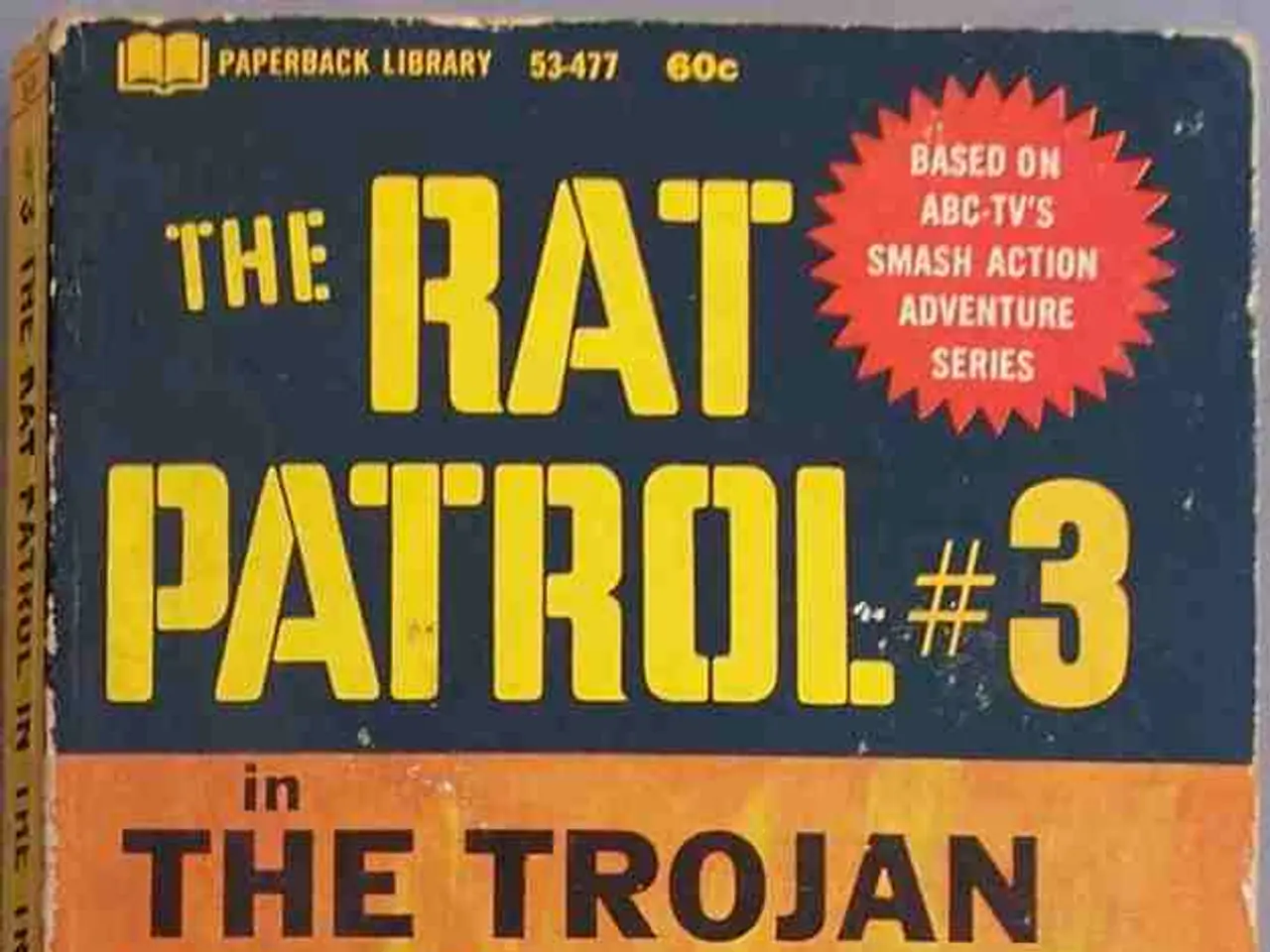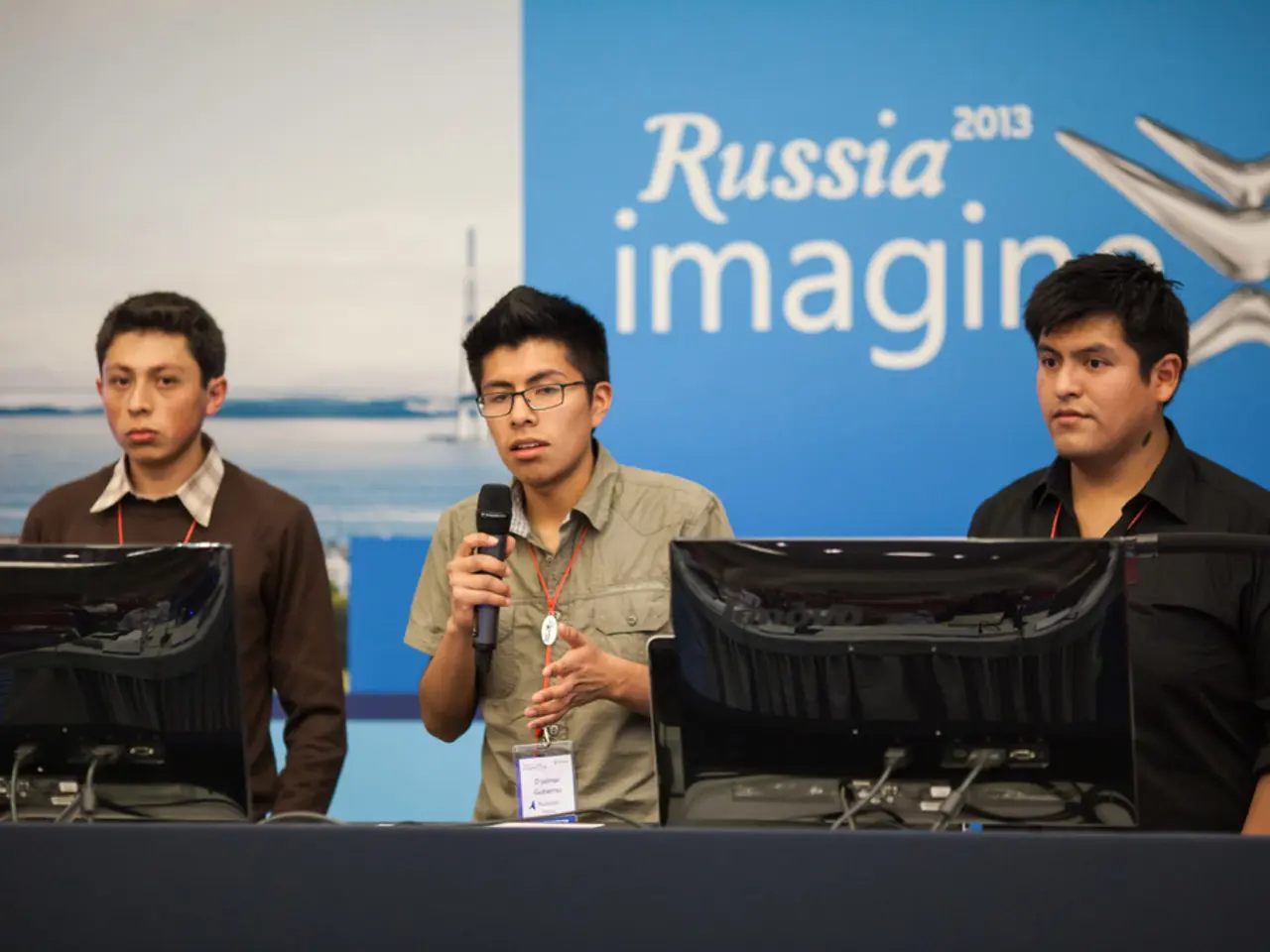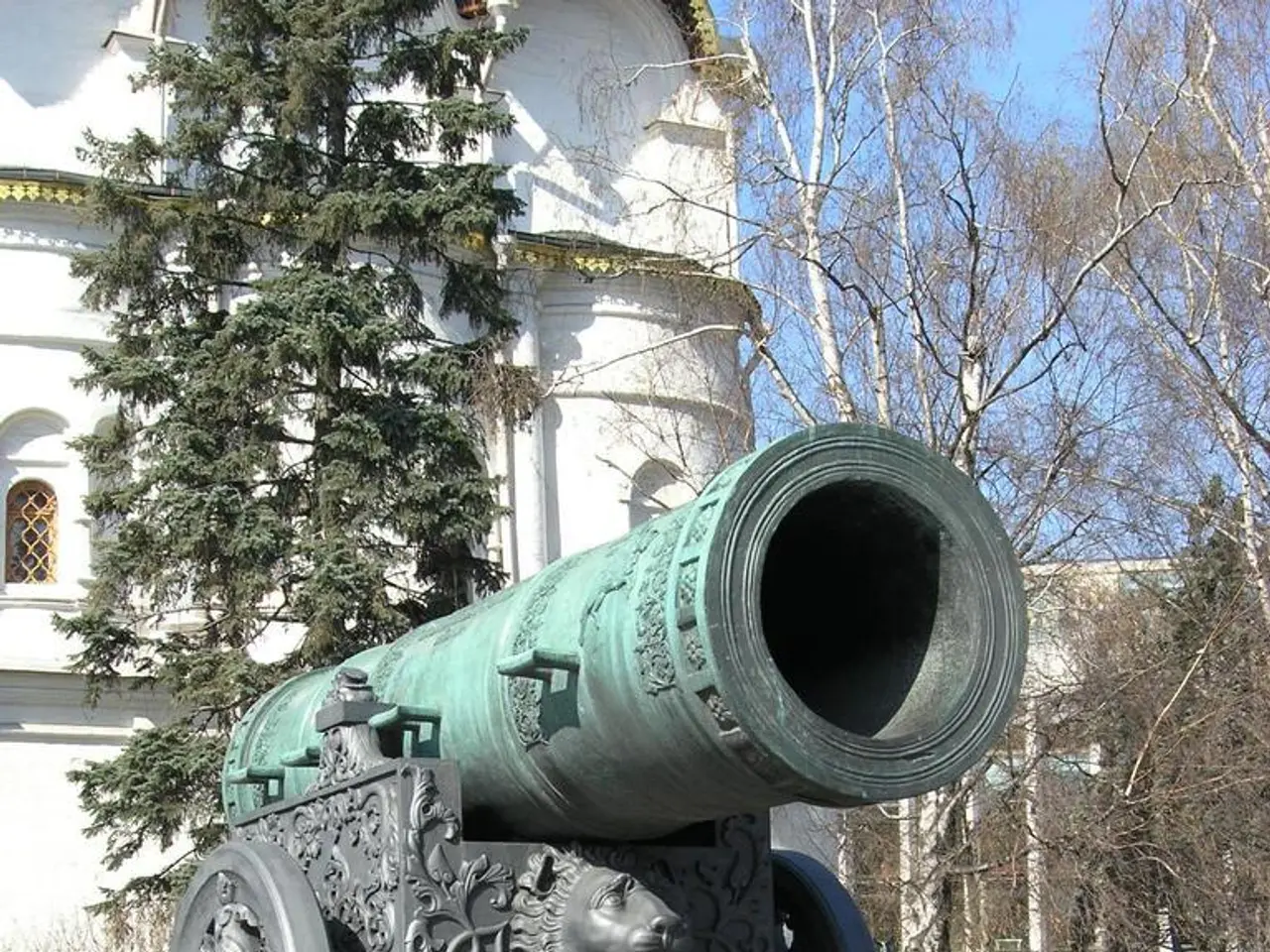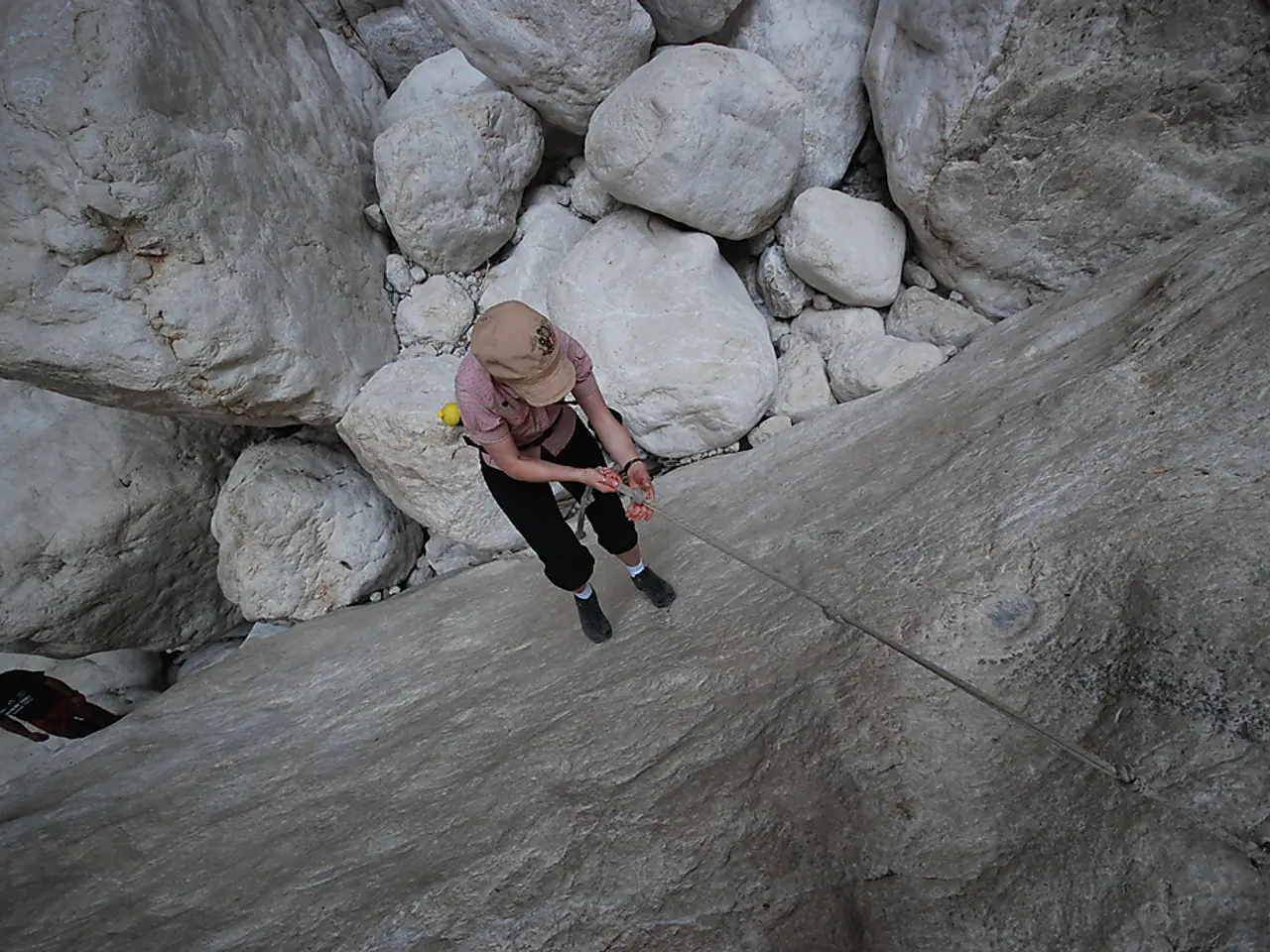SPD Manifesto Unveils Ignorance Toward Putin's Objectives
In the heart of June 2025, the Social Democratic Party (SPD) of Germany published a manifesto titled "Securing Peace in Europe through Defense Capability, Arms Control, and Dialogue." This document, timed to coincide with the SPD party conference, has sparked a significant debate within the party and beyond.
The manifesto, led by left-wing caucus chair Rolf Mützenich, represents a critical and pacifist faction within the party, advocating a return to détente with Russia and opposing further militarization. This group is concerned about controversial defense policies like stationing medium-range missiles in Germany, such as the US Typhoon missile launchers with a 2,000 km range, which could target Russia.
One of the key points in the manifesto is the call for arms control agreements and diplomatic dialogue with Russia rather than rearmament and an aggressive NATO posture. The authors argue that the current alarmist rhetoric fueling militarization since 1945 is threatening peace rather than protecting it.
The manifesto also critiques NATO’s eastward expansion and Germany's leadership role in militarizing European security, suggesting these may have contributed to conflict dynamics such as in Ukraine. The authors emphasize historical awareness of Soviet losses in WWII, implying policies neglecting this legacy are short-sighted.
The publication of the manifesto has triggered debates within SPD, highlighting a split between leadership support for increased defense spending and modernization (including missile procurement) and a left-wing faction advocating peace and restraint. Approximately 100 SPD members, including Mützenich and Ralf Stegner, have signed the manifesto.
Notable figures, such as Sahra Wagenknecht, seem captivated by the aura of Russia's invincibility and the escalation risk of military support for Ukraine. On the other hand, Matthias Miersch, the new faction leader, has already responded to hints of Ukraine's continued desire for Taurus cruise missiles with "Not with Social Democracy."
The manifesto fundamentally undermines the foreign and security policy of the new government and advocates a renewed U-turn in Russia policy. However, the implications of this stance on SPD's broader defense policy discourse, which also includes commitments to strengthen Germany’s defense, are yet to be fully understood.
Meanwhile, outside opinions are mixed. Michael Rühle, a NATO official and respected expert, denounces "war hysteria" and "panic mongering," sometimes ridiculing colleagues with different positions as "commentariat." In contrast, Brigadier General (ret.) Klaus Wittmann, a contemporary history teacher at the University of Potsdam, has submitted a contribution to the open-source initiative supporting the manifesto.
The massive build-up of Russian military capabilities is obvious, and leading experts are convinced that by 2029, Russia will possess the means to test the cohesion and defense readiness of NATO. Johannes Varwick, a Halle professor, has been advocating for "intelligent diplomacy" with Putin since the invasion began without ever being able to answer what kind of compromise between annihilation intent and will to survive could even be conceivable.
As the debate continues, the SPD faces a critical juncture in its defense policy, balancing commitments to peace and security in Europe with the need for a robust defense strategy in an increasingly complex geopolitical landscape.
- The Social Democratic Party (SPD) of Germany published a manifesto focusing on securing peace in Europe, sparking significant debates.
- The manifesto, led by Rolf Mützenich, represents a critical and pacifist faction within the party, advocating for de-escalation with Russia.
- The authors argue that the current alarmist rhetoric leading to militarization since 1945 is threatening peace rather than protecting it.
- The manifesto criticizes NATO's eastward expansion and Germany's leadership role in militarizing European security.
- Approximately 100 SPD members, including Mützenich and Ralf Stegner, have signed the manifesto.
- The manifesto fundamentally undermines the foreign and security policy of the new government, advocating a renewed U-turn in Russia policy.
- The debate within SPD highlights a split between leadership support for increased defense spending and modernization and a left-wing faction advocating peace and restraint.
- Sahra Wagenknecht, a notable figure, is captivated by Russia's invincibility, while Matthias Miersch has already responded to calls for Taurus cruise missiles with "Not with Social Democracy."
- The publication of the manifesto has triggered various opinions outside the party, with figures like Michael Rühle denouncing "war hysteria."
- Brigadier General (ret.) Klaus Wittmann, a contemporary history teacher at the University of Potsdam, has submitted a contribution supporting the manifesto.
- Leading experts are concerned about the massive build-up of Russian military capabilities, predicting a potential test of NATO's cohesion and defense readiness by 2029.
- Johannes Varwick, a Halle professor, has been advocating for "intelligent diplomacy" with Putin since the invasion began without being able to suggest a viable compromise.
- The SPD faces a critical juncture in its defense policy, balancing commitments to peace and security in Europe with the need for a robust defense strategy.
- Amid this debate, general news, sports, crime and justice, accidents, fires, politics, and even sports betting highlight these pressing issues in their coverage.
- In sports, football's champions league, basketball's NBA, baseball's MLB, hockey's NHL, golf, tennis, racing, and even mixed martial arts discussions are colored by the geopolitical landscape.
- European leagues, weather forecasting, and auto-racing events also reflect the tensions across the continent, influencing fan sentiments and team decisions.
- Meanwhile, weather news reports continue to share forecasts, affecting daily routines and various activities, serving as a constant reminder of the unpredictability of the world beyond policy and legislation.





